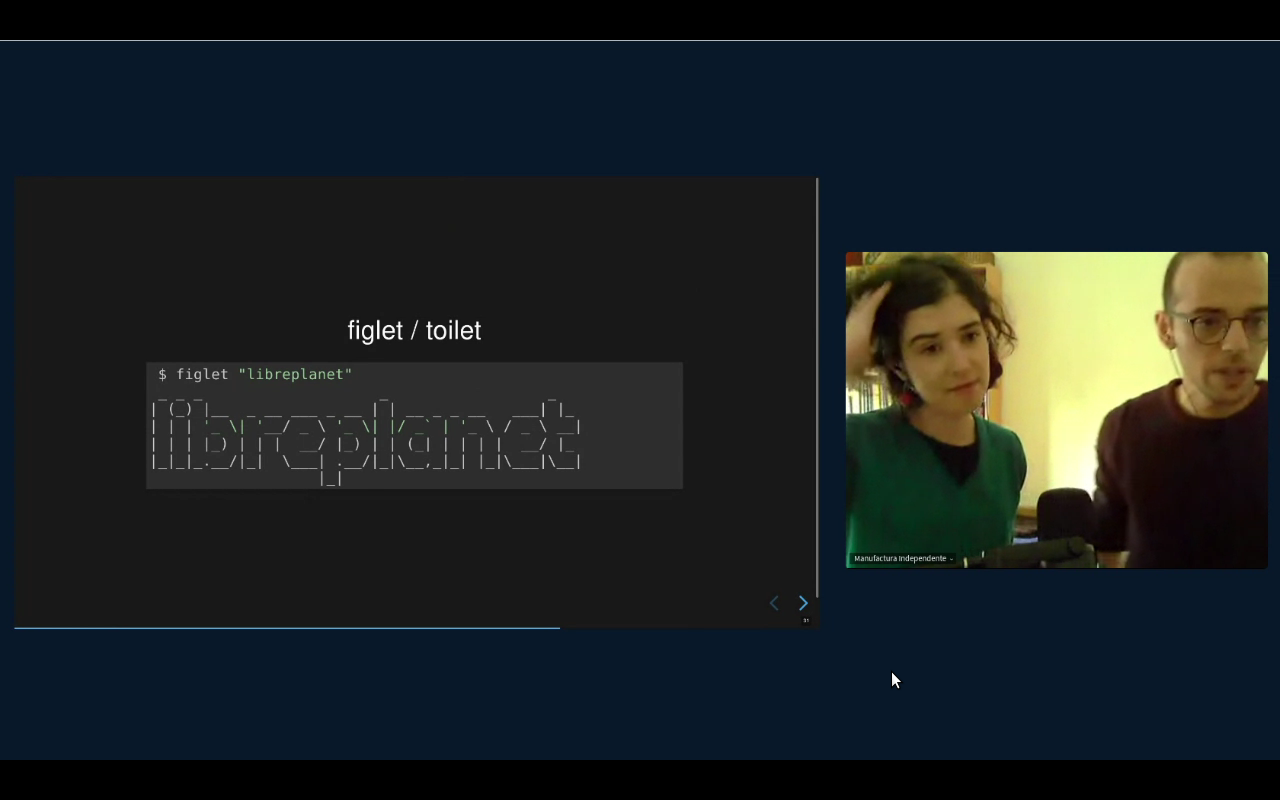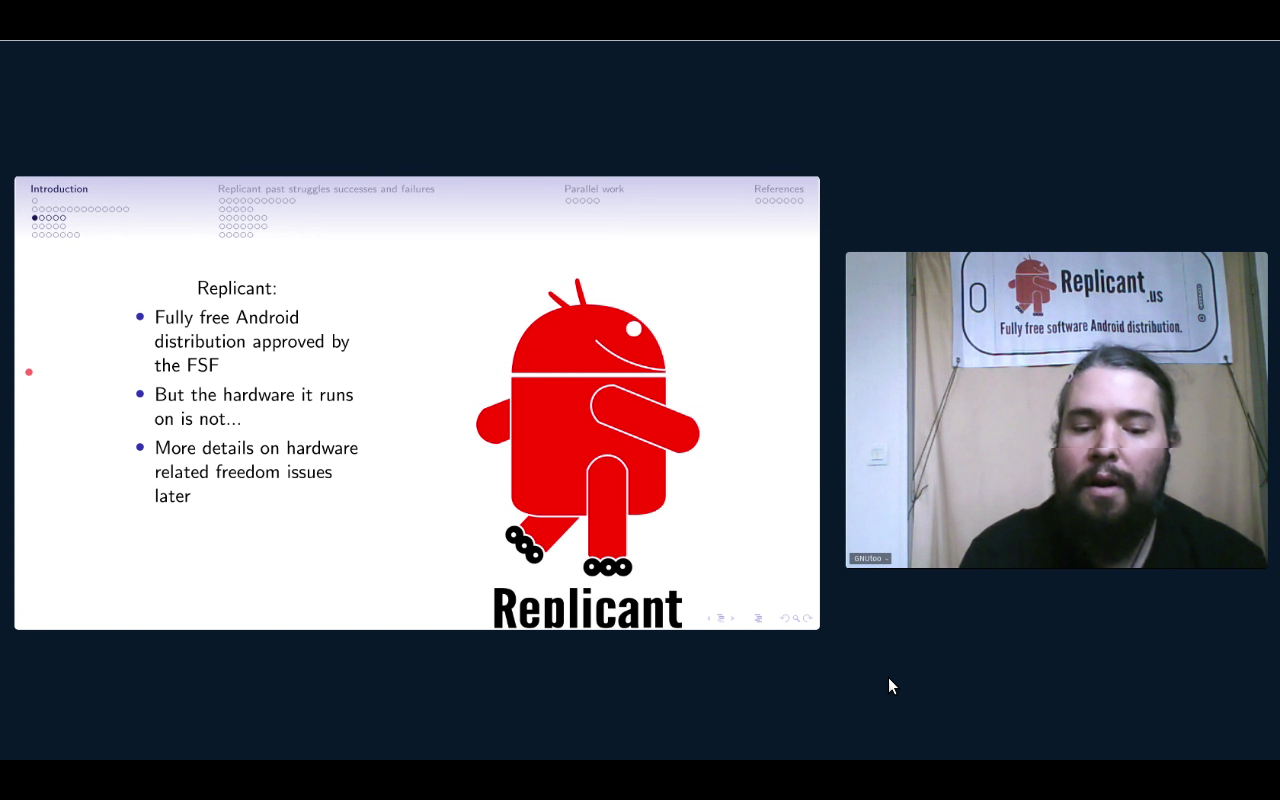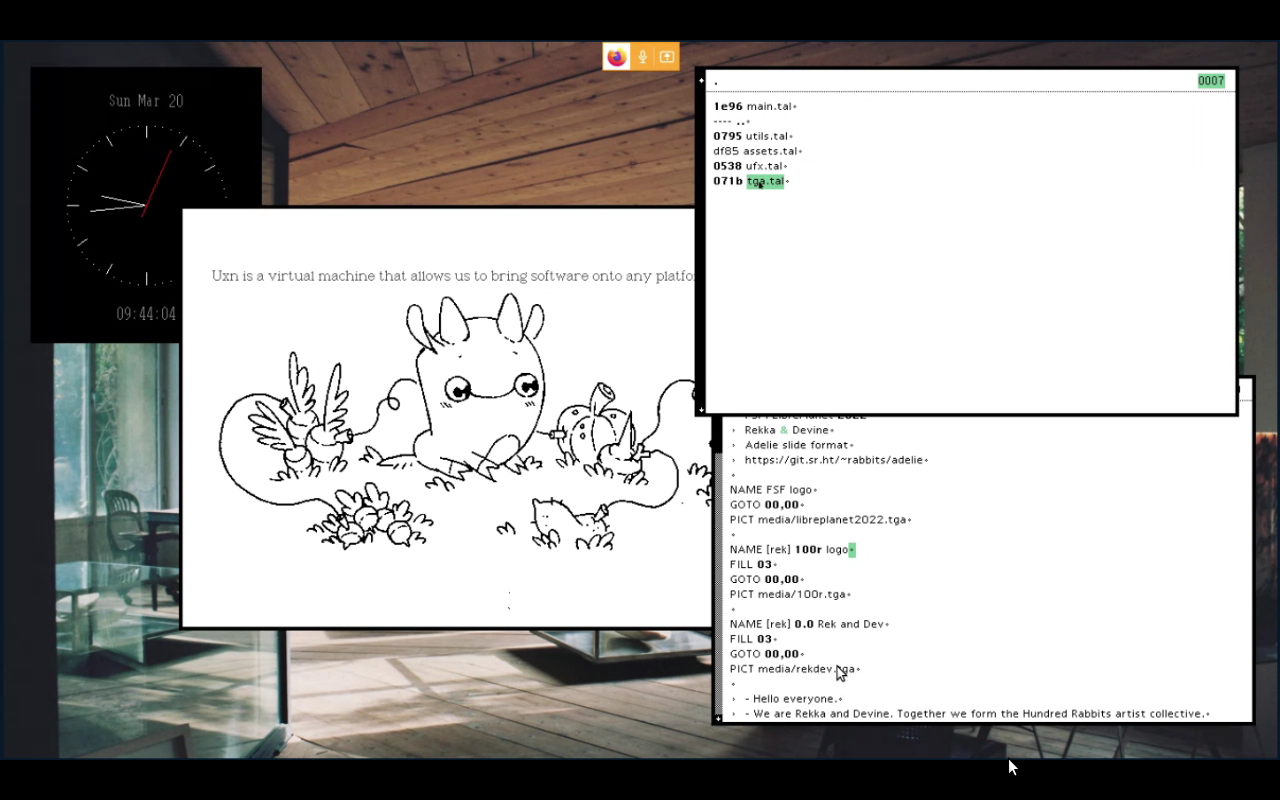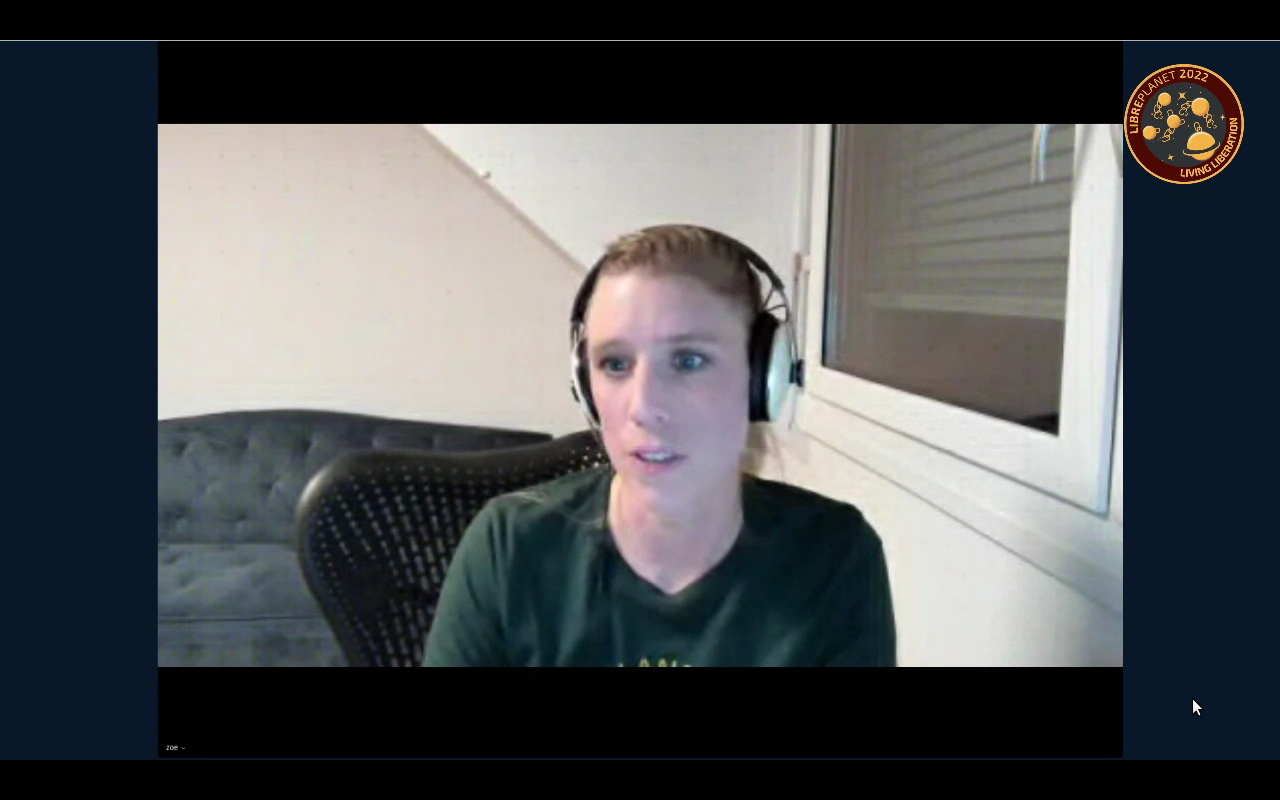|
Please consider adding [email protected] to your address book, which
will ensure that our messages reach you and not your spam box.
Read and share online: https://www.fsf.org/blogs/community/libreplanet-living-liberation-day-two-retrospective-and-motivation-for-freedom
Dear Free Software Supporter,
Today marked the second of two days of events and talks for the Free
Software Foundation's (FSF) annual conference, LibrePlanet. This
year's theme is "Living Liberation," and the talks and activities were
centered around how to live a more liberated life in a world
increasingly filled with technology.
To start the conference off, outreach and communications coordinator,
Devin Ulibarri, gave opening remarks, and introduced the day's
events, in addition to mentioning measures taken by the FSF tech
team to resolve Saturday's technical difficulties, which included an
added audio-only stream for users with low bandwidth and improvements
made to how the "low-res" stream is generated.
Just like yesterday, there were many talks covering a variety of
different topics, and there is much to be said about all of them. Here
are some of our highlights.
Command Line tools for design
 "Design in the command line: Recipes for tasty outcomes" was presented
by Ana Isabel Carvalho and Ricardo Lafuente of Manufactura
Indepente. The command-line isn't something that's usually
associated with graphic design, but Ricardo and Ana went above and
beyond in providing practical advice for creating visible
outcomes. Their cookbook included exotic ingredients like ImageMagick,
PDFtk, FFMpeg, Makefiles, Git -- and as they so beautifully expressed
in their description for the program -- "with just a dash of Python
and Bash scripting to bind the flavors together."
Replicant
 Denis "GNUtoo" Carikli spoke on behalf of Replicant, a free
distribution of the Android operating system that is fiscally
supported by the FSF. GNUtoo spoke about software freedom, Digital
Restrictions Management (DRM), and more, especially where they pertain
to the mobile phone landscape. The talk also covered some challenges
ahead for freedom-friendly phones, such as the continuing deprecation
of 3G networks.
GNUtoo highlighted the need or free software operating systems on
mobile phones, but also for more hardware to be supported by free
firmware. Even though Replicant targets the dated Samsung Galaxy S-III
phone, a USB dongle is still required to connect to WiFi networks if
one wants to retain their freedom. Artificial limitations like these
are caused entirely by device manufacturers' reluctance to free the
underlying firmware of a given device component, even if a free driver
is available.
Carikli also shared some updates on the status of Replicant 11, which
is currently underway. Also reported at the talk, Replicant has been
able to switch to "mainline" versions of the kernel Linux, rather than
relying on vendor-specific kernel trees and versions.
Opening keynote
 This Sunday's opening keynote was the collective Hundred Rabbits,
who shared the challenges they both face living "off the grid," on a
boat, and often without Internet.
Hundred Rabbits shared many tips for self-reliance and how their use
of, among other things, free software helped them to live without
reliance on proprietary software or "always-on," Service as a
Software Substitute (SaaSS). Rekka and Devine shared their work on
the Uxn virtual machine, which all of their programs target, and even
showed some "under the hood" code used to run their slideshow
presentation, which was quite delightful to see. They also described
how their approach to software goes against the typical narrative in
mainstream tech media, and how they exclusively use secondhand
computers and devices, many of which are more than a decade old.
Given that Hundred Rabbits live and work on their trusty sailboat,
which is lovingly named "Pino," during the Q&A, some time was devoted
to the ins-and-outs of living on the sea: solar panels, going
"fridge-less," and retrieving digital information with limited or no
network access. As part of their talk, they also highlighted the need
for "offline-first" (or "offline-friendly") software which is critical
for a "more resilient future."
As Hundred Rabbits is an art collective, their presentation wouldn't
have been complete without the illustrations accompanying all of their
slides, drawn by Rekka. Their talk also had to do with ways they've
"liberated [their] imagination by limiting [their] possibilities,"
speaking to how their constrained living situation has helped spark
their extraordinary creativity.
Free software in learning
 Later in the day, Greta Goetz, PhD, and assistant professor in the
English Department, University of Belgrade, gave her talk, "Retracing
digital freedom as pattern learning for life," and shared her
perspective and efforts toward bringing free software into the
classroom.
Greta discussed "co-creative digital spaces," habitual "usage
patterns" that people and organizations often fall into, and
challenges she personally faced when attempting to bring free software
adoption to her institution. She also shared how she learned to
program by creating digital tools for her own classroom, and
recognized the work of free software communities, maintainers, and
LibrePlanet organizers.
"If it wasn't for free software, these things would not be
possible."
-- Greta Goetz, PhD
Closing keynote
 The closing keynote was given by Zoë Kooyman, the newly appointed
executive director of the FSF. Zoë began by congratulating yesterday's
FSF award winners, thanking our keynotes Marleen Stikker and
Hundred Rabbits, and thanking all of the day's other speakers.
She spoke about how free software is relevant in many aspects of our
daily lives, and emphasized two critical areas: education and
government, for which the free software movement is continuing to work
toward a more just digital society. She mentioned how digital books
are "riddled with Digital Restrictions Management (DRM)," the
challenges that increased online proctoring bring to privacy and
software freedom, and the need for wider adoption of
freedom-respecting ways of doing videoconferencing in education.
Zoë said that she has "an endless amount of examples and reasons to
believe that free software is the way forward, worth protecting, and
something we need to make sure people understand how to fight for,"
and went on to list numerous other reasons for people to fight for
free software. These included license adoption and copyleft, the
environment, right to repair, software-embedded medical devices, bulk
surveillance and encryption, among others.
She concluded her talk by thanking FSF staff, volunteers, and
contributors.
A message from FSF president Geoffrey Knauth
In his closing remarks, FSF president, Geoffrey Knauth, highlighted
the importance of the free software community's efforts, and the role
the FSF plays in them, saying that, "as the host and facilitator of
LibrePlanet, the FSF is proud to elevate and showcase the voices of
the free software community at this annual event. The FSF staff works
extremely hard to create and support the program and they deserve our
thanks and appreciation. Knauth also emphasized that "we will carry
these conversations forward beyond this weekend. The staff is working
hard to provide you with more free software community gatherings."
Knauth announced the first of these community gatherings in the form
of a LibrePlanet workshop series, schedule pending, and a forthcoming
talk by Richard M. Stallman (RMS), founder of the FSF and the free
software movement. RMS's address will be entitled "The State of the
Free Software Movement," and will be held by the FSF on April 13 at
14:00 EDT (18:00 UTC).
I hope that you were as inspired by this year's LibrePlanet as we
were, and that it will motivate you to strive for more freedom in your
daily life. Please see the events page for more information on
our forthcoming workshops and events.
We look forward to seeing you at the next LibrePlanet!
Devin Ulibarri
Outreach & Communications Coordinator
Images Copyright © 2022 Free Software Foundation, Inc., licensed under
Creative Commons Attribution 4.0 International license.
|